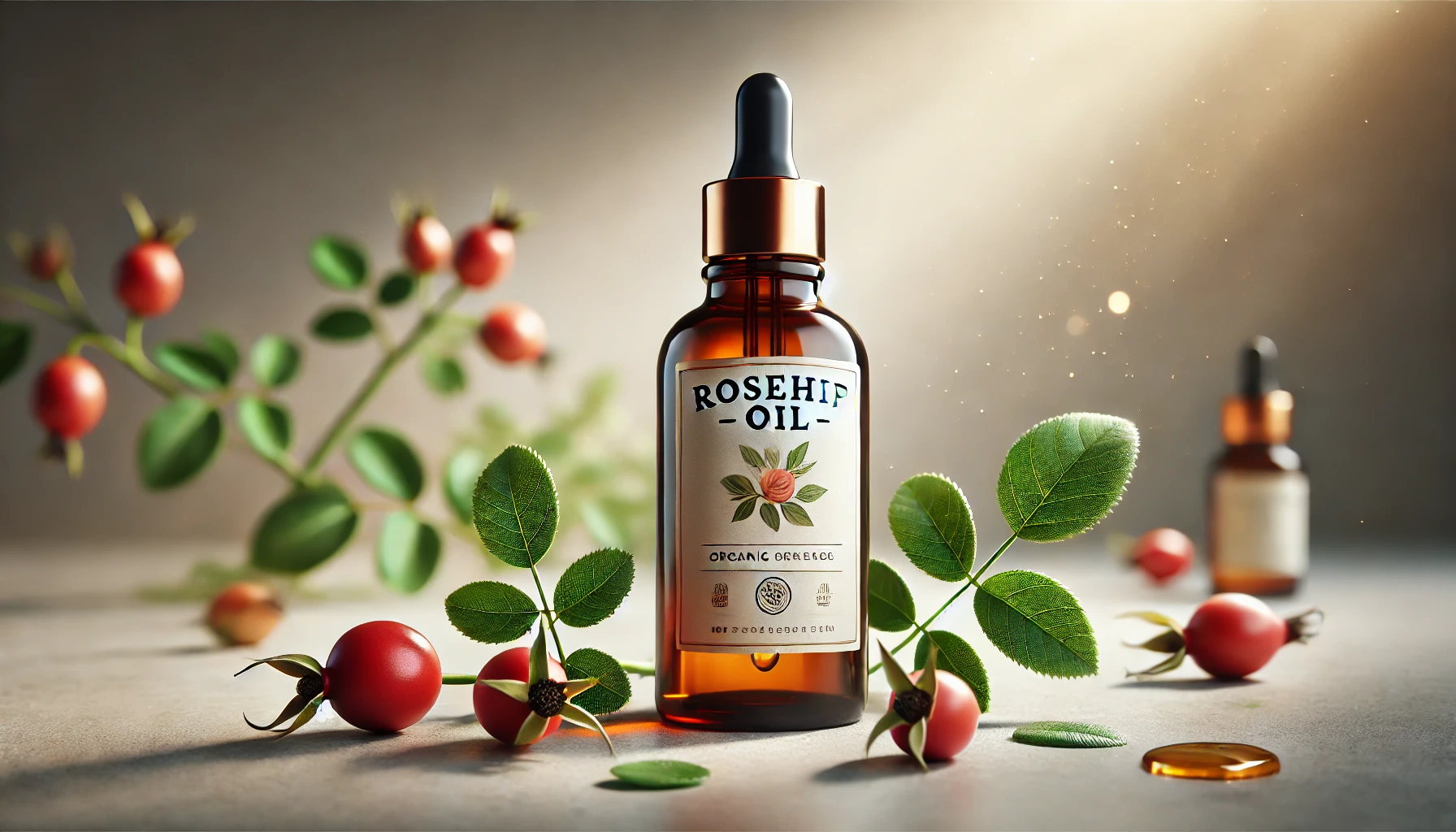This post was written with Consensus AI Academic Search Engine – please read our Disclaimer at the end of this article. Rosehip oil, derived from the seeds of the wild rose bush, has gained popularity for its potential health benefits. This article explores the efficacy of rosehip oil in various health applications, particularly focusing on its impact on skin health and obesity management.
Skin Health Benefits
Rosehip oil is often touted for its skin-healing properties. A study investigated its efficacy in treating skin lesions caused by frequent finger prick blood glucose monitoring in patients with type 1 diabetes mellitus. The study involved 68 children, with 136 hands assessed for skin lesions such as erythema, skin thickening, and loss of skin integrity. Although the study found a high prevalence of mild skin lesions at the start, treatment with rosehip oil did not significantly improve these conditions compared to the control group. Importantly, no adverse effects were recorded, indicating that rosehip oil is safe for use on the skin, even if its effectiveness in this specific context was limited1.
Anti-Obesity Effects
Beyond skin health, rosehip extract has shown promise in managing obesity. A clinical trial examined the effects of daily rosehip extract intake on abdominal visceral fat in preobese subjects. Over a 12-week period, participants who consumed rosehip extract experienced significant reductions in abdominal total fat area, visceral fat area, body weight, and body mass index compared to their baseline levels and the placebo group. These findings suggest that rosehip extract could be an effective dietary supplement for reducing body fat and managing obesity without adverse effects2.
Conclusion
Rosehip oil and extract offer potential health benefits, particularly in the areas of skin health and obesity management. While rosehip oil was found to be safe for skin application, its effectiveness in treating skin lesions in diabetic patients was not significant. However, rosehip extract demonstrated a notable ability to reduce body fat in preobese individuals, highlighting its potential as a natural aid in obesity prevention. Further research could expand on these findings to better understand the full range of health benefits offered by rosehip oil and extract.
Disclaimer
The content presented in this blog is generated by Consensus, an AI-powered academic search engine, and is based on publicly available scientific literature. While every effort is made to provide accurate, up-to-date, and well-researched information, the content is intended for informational and educational purposes only. It does not constitute medical advice, diagnosis, or treatment. Always consult a qualified healthcare professional before making any decisions regarding medical conditions, treatments, or medications. The AI system’s analysis may not cover all perspectives, emerging research, or individual cases, and it is not a substitute for professional expertise. Neither the blog publisher nor the developers of the AI-powered search engine are responsible for any actions taken based on the information provided in this content. Use of this information is at your own risk. Citations to the original scientific studies are included for reference, but these studies should be reviewed in full and interpreted with the guidance of a healthcare or research professional.
If you are experiencing a medical emergency, please seek immediate attention from a healthcare provider.
